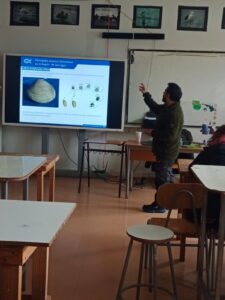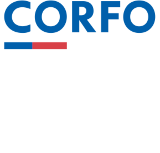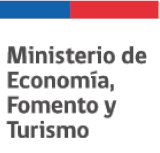
 With interactive talks and a presentation on the “Semilla Endémica” platform
With interactive talks and a presentation on the “Semilla Endémica” platform
As part of the Ocean Day celebration, the Fisheries Development Institute (IFOP) actively participated in the second edition of the Chiloé Environmental Festival, “ChiloEcofest”, an event organized by the NGO Chiloé Protegido, the Parque Tantauco Foundation, and the Municipality of Quellón, with the goal of highlighting the natural heritage of the archipelago.
On this occasion, IFOP researchers carried out various scientific outreach activities in the commune of Quellón. At the Liceo Bicentenario Paulo Freire, researcher M.Sc. (c) Óscar Ramírez, from the Aquaculture Division and the Environment Department, conducted an interactive class on mussel farming (mitiliculture), using paper microscopes to teach students about the life cycle of mussels and their ecological and productive importance.
At the same time, his colleague M.Sc. Paulo Mora, representing the Fisheries Division, gave a class focused on benthic resources, emphasizing their relevance to local fisheries and their ecological role in the territory.
The activity was enthusiastically received by the students, who participated eagerly, asked questions, and appreciated the opportunity to learn in a hands-on way about the marine ecosystems that are part of their surroundings.
Later, researchers Dr. Cristian Segura and M.Sc. Paulo Mora took part in a discussion at the Casa de la Cultura in Quellón, where Cristian showcased the features of the Semilla Endémica platform, and Paulo highlighted the importance of benthic resources in the local economy. Both reflected on the value of community collaboration in the collection of scientific data.
During the talk, the role of the team of Scientific Observers, led by regional coordinator Leslie Figueroa, was highlighted for their contribution of essential information to the sustainable management of marine resources.
Cristian and Paulo’s presentation received a highly positive response from the audience, which was largely composed of representatives of Indigenous communities and coastal defenders. This was yet another opportunity for both the Aquaculture Research Division and the Environment Department, together with the Fisheries Research Division, to share marine science collaboratively. Attendees followed the presentations with great interest, underscoring the importance of having open-access platforms and reliable data to support decision-making in the aquaculture of the Chilean mussel and the management of marine ecosystems.
Monitoring mussel larvae – IFOP ::: In service of scientific research in fisheries and aquaculture
The subsequent dialogue was marked by numerous questions from attendees, who expressed interest in how these scientific tools can help strengthen mussel farming and artisanal fishing, as well as protect natural mussel beds in the context of climate change and the increasing pressure on coastal areas.
The active participation of students, communities, and local organizations reflected the value of these events in bringing scientific research closer to citizens, building trust, and promoting collaboration around the protection of Chiloé’s sea.
In this way, IFOP’s presence at ChiloEcofest reaffirms its commitment to scientific outreach and sustainable development, fostering collaborative work among science, communities, and institutions for the protection of the archipelago’s marine ecosystems.
Finally, we would like to thank Sergio Reinaldos Panichine, Head of the Amador Cárdenas Municipal Museum of Quellón and part of the organizing team of ChiloÉcofest, for the invitation.
– Instagram: https://www.instagram.com/chiloecofest/
– Facebook: https://web.facebook.com/profile.php?id=61578640933165




